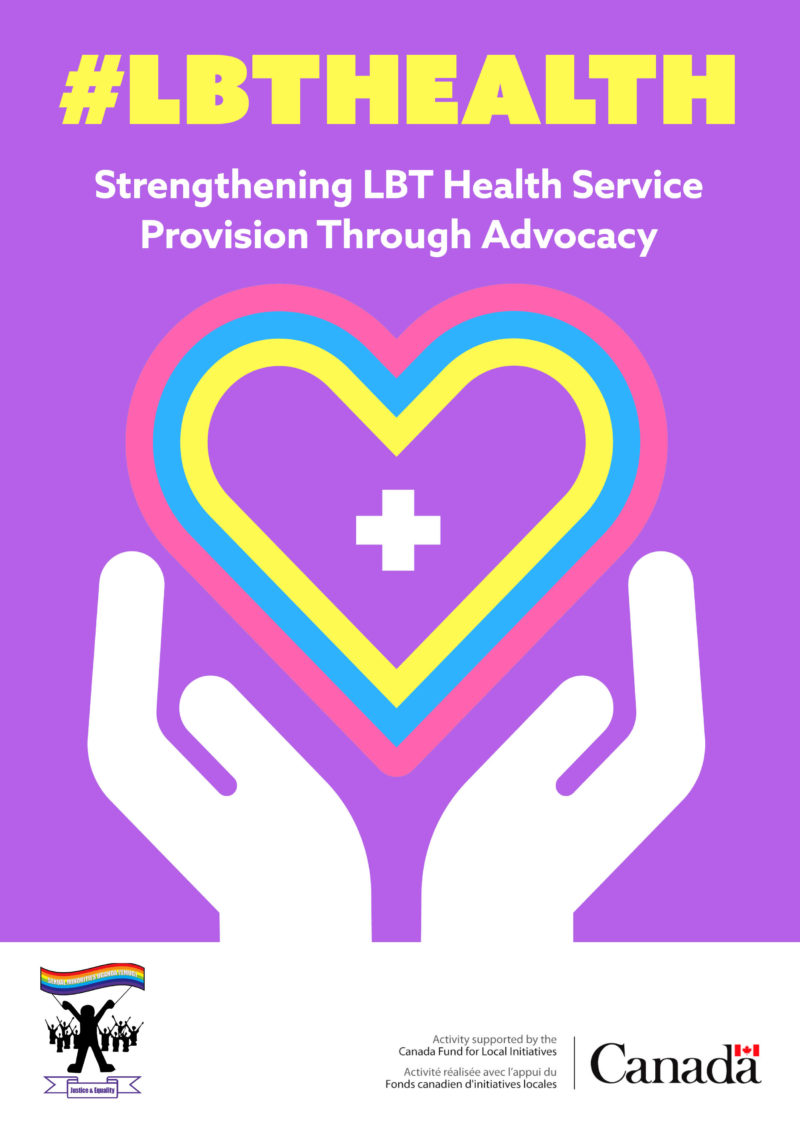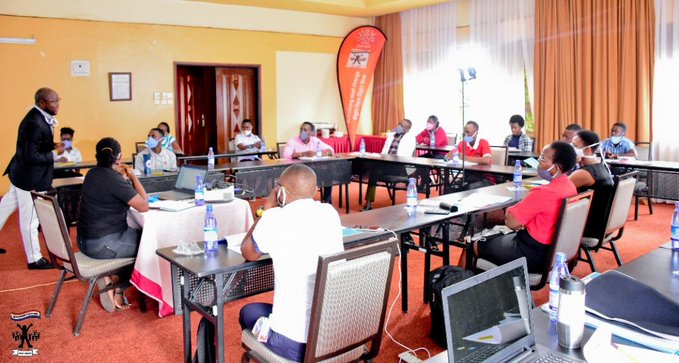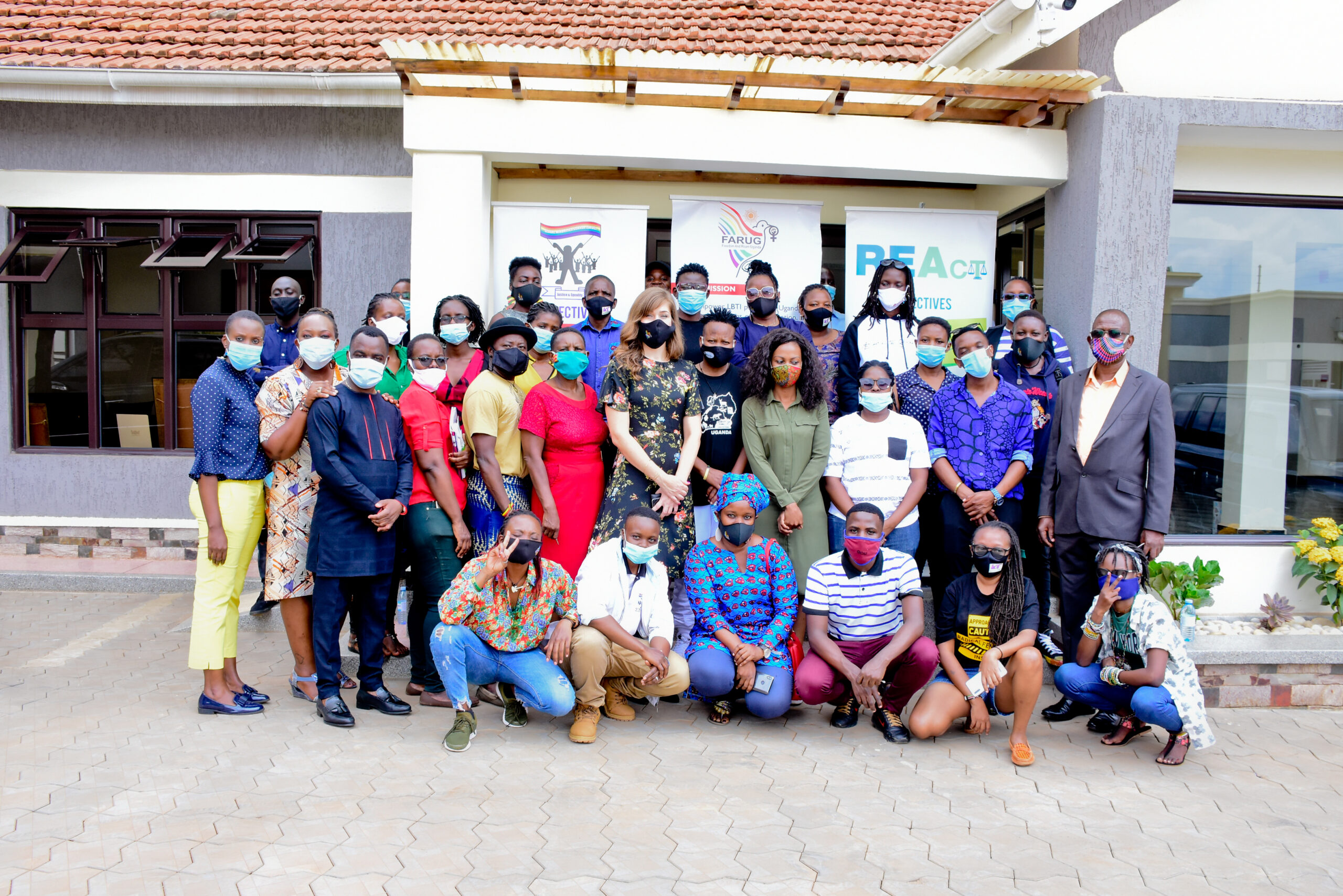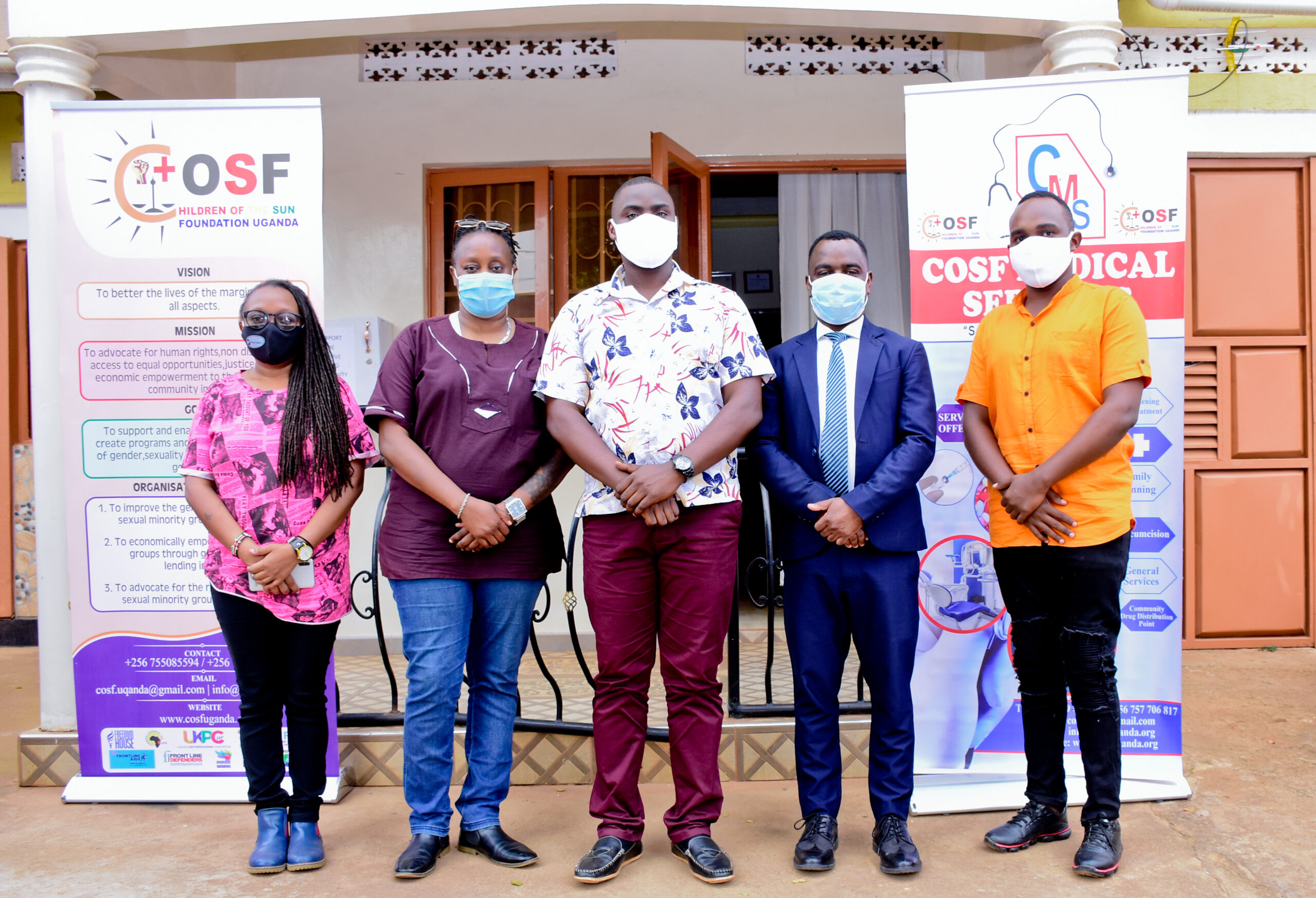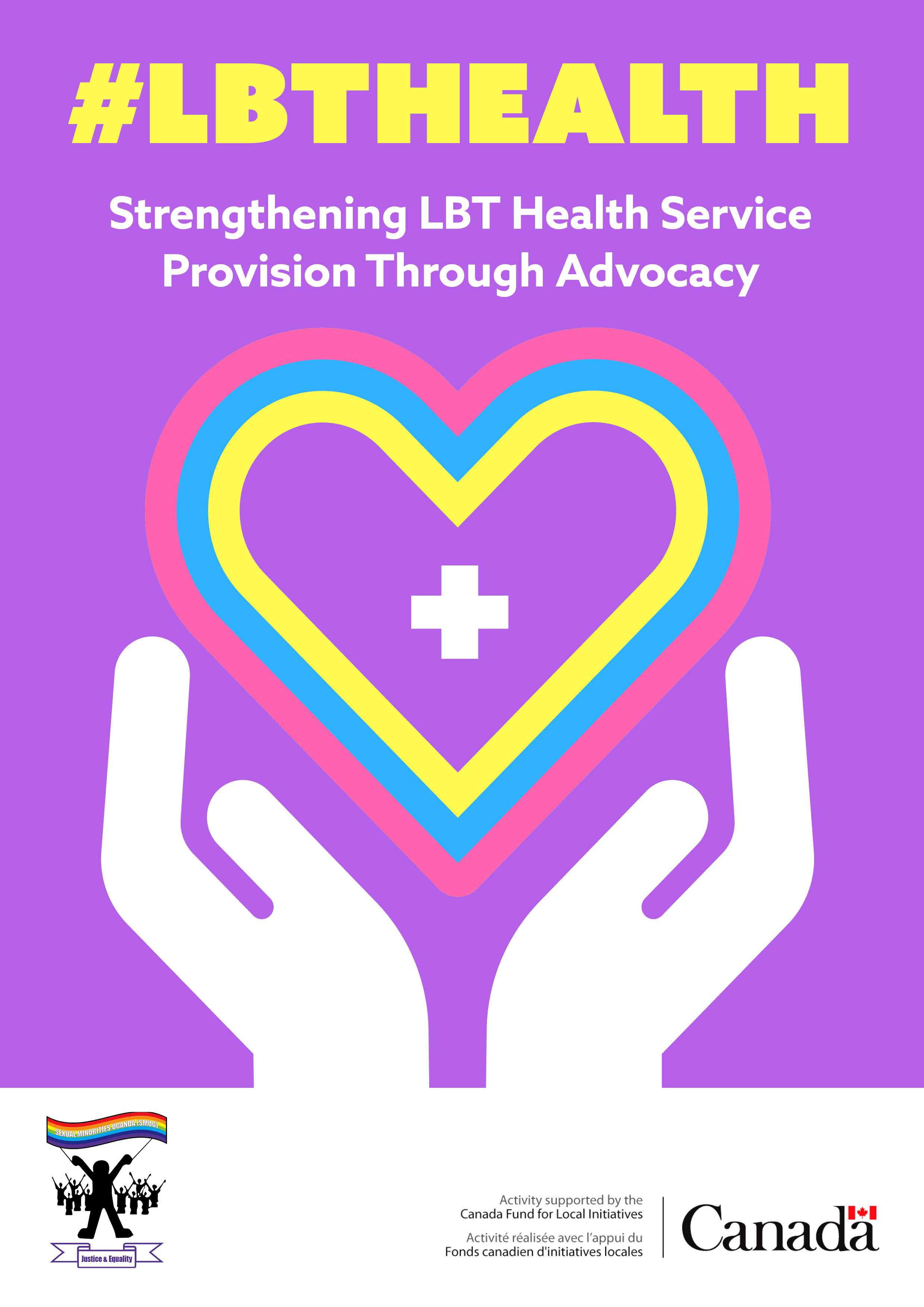
In the coming months, SMUG will be rolling out the #LBThealth campaign. The campaign will focus on the specific health concerns, needs, and challenges of the lesbian, bisexual, and transgender community. As focus on LGBTI health often centers on men who have sex with men (MSM), it is the intention of the campaign to shift the focus towards the key populations (KPs) that are not as represented as they should be in the discussion on sexual minorities’ health care rights. The aim is not to exclude G (or I+), but rather to allocate even more focus to LBT health care provision, through a specified focus of advocacy.
Background: Highlighting the Neglect of KPs
Ever since focus was first applied to sexual minorities and their contraction of sexually transmitted diseases (STDs), priority has mainly been applied to the health concerns of the male population of the Ugandan sexual minorities community. One evident example of this is the recording of HIV/AIDS-related health concerns for men who have sex with men (MSM). The MSM-specified focus on programming for the provision of HIV/AIDS testing and treatment services is in itself a good development. This particular focus entails the recognition of same-gender sexual activities and the need for health care and awareness therein. In fact, advocacy and service delivery for this specific target group has seen a greater presence as of recent. Yet, this gender-biased focus and approach renders a gap in the programming of a number of other sexual minorities. SMUG believes that it is important to provide sensitisation of health care workers that goes beyond recognition of the MSM population and also reaches the lesbian and transgender community.
Findings suggest that transgender persons do not have health service providers whom they trust enough to go to in order to access essential tests and treatments. Such tests and treatments include prostate and breast cancer screenings. Lack of these services renders transgender people a KP at high risk and if they do not have access to health services, this leads to detection of health related issues at the very last minute which has dire implications on the life of the LBT. One apparent reason for this highly unsustainable causal relationship is the simple fact that transgender people dress and act contrary to what is “expected” of them by the general community. As the SMUG report of 2018 suggests, health care providers typically share in the same gender-based expectations as the general population, and are unhesitant to act upon their biases against non-conforming sexual identifying people. This, unfortunately, lays the grounds for the discouragement and real inability of mentioned KP’s to access services from traditional service providers. The result is a major neglect of the health status of the transgender population and other KPs.
Testimonies: Highlighting Niche Needs and Challenges
In what follows, testimonies of representatives from the LBT community will be presented. The intent behind these representations is to illustrate the various and niche needs and challenges faced by said KPs in attending to matters of personal health care. The testimonies presented are of a selection collected throughout the course of 2017 and have been cleared for use in SMUG-conducted reports by the testifying victims. The testimonies have not been altered and are here reported as they were recorded. Qwin Mbabazi, a lesbian activist, experienced the stigmatisation of the LBT-community in the healthcare sector herself:
“There are times when I have been admitted to the hospital and my ‘butch’-lesbian friends have come to visit me. The nurses would be pointing at them and clearly whispering about them in a negative way. I feel like ‘butch’-lesbians face more discrimination than ‘fem’- lesbians. When they would walk in, you will see the glances from others. My ‘butch’ friends have always told me that they don’t like going to public hospitals because they will be discriminated against, and pointed at. And when it comes to trans-men it can actually be worse.”
As the next testimony shows, even mere access to healthcare can be nearly impossible. This results in some members of the community not receiving the treatment they desperately need. For Stanley, a transgender woman, a visit to the hospital turned out to be a traumatizing experience, with potential devastating effects on her health:
“In the village where I used to live, Nansana (a large suburb of Kampala City, they knew that I was a transgender person and because I am a man that behaves like a woman, they refused me treatment. (…) I was sick with fever, headache and stomachache. I did have money to buy medication, but because I grew up in that village they knew me as a gay man or a transgender woman, they refused to give me treatment.
The clinic was close to my home, and the villagers used to give me names like “man-woman” (mukazi-musujja). When the doctor saw me he shouted, ‘Isn’t this the gay man who they call boy-girl?’ And the other doctors said, ‘Yes, he’s the one!’ They said, ‘We will call the police here, we don’t want these kinds of people here.’
I was so scared, I didn’t say anything. I was really, really, really sick. I didn’t get to see a doctor. I just left them and I never returned back to that clinic.”
These testimonies illustrate two out of many incidents in which members of the LBT community have faced detrimental discrimination when seeking health care. SMUG and the #LBThealth is devoted to raise awareness on these issues. Through advocacy and the provision of training for health care providers, the #LBThealth campaign aims at sensitising health care providers and thus provide safer, more accessible health care services.
Organizational Structure: Activism and Advocacy in the Regions
A campaign which sets progressive targets for a number of KPs, often requires attentive action in several locations. Our LGBTQ community is widespread, but varies in magnitude depending on where members of KPs are situated. Where the general population is smaller, it follows that the minority in question is even smaller. For this reason, it is important to recognize the necessity for continuous direct involvement in more remote districts. Upon this background the #LBThealth campaign will deliver workshops conducted through SMUG’s membership in Mbale and Jinja in Eastern Uganda, and Mbarara and Kasese in Western Uganda.
The presence of activism and mobilization in these locations is unquestionable. Without partners in the East such as ERWEO, HOPE Mbale, and Triumph Uganda, and partners in the West such as Blessed Rwenzori Uganda and the Mbarara Rise Foundation, SMUG would not be able to deliver at the current level of advocacy. Similarly, it is the frontrunners of these membership organizations that ensure that the sustainability and progress of the discussions, advocacy, and activism is maintained in the more remote areas.
The work of the frontrunners is invaluable. To bring about a sense of collective belonging to people that long have led a lonesome struggle, and to provide a stronger sense of security to a community that constantly feels at risk, is what their work constitutes in. To this day, SMUG continues to see the fruits of these efforts. For every event hosted in partnership with members under our ever-expanding umbrella, new members attend, network, and even share in their stories as persons of the LGBTQ community. These are the most apparent results of the significant work conducted by the frontrunners within the LGBTQ community. Yet, this also goes to show the constant need for the involvement of SMUG.
To maintain the incredible work and results provided by our partners in the districts, there is a need for assistance ever so often. It is the shared responsibility of SMUG to ensure that our member organizations constantly “feel the umbrella”. We hope to meet these needs by facilitating workshops in which our partners as well as health care providers in the districts attend, and together embody a forum for sharing in experiences and challenges to cater for better cooperation. The presence and insights of the health care providers will be vital in finding a common ground, and has already proven a valuable component during our first workshop in Mbale Read More here.
Campaign Prospects and How to Stay Tuned
Through bringing KP members and health care providers together, we hope to strengthen what is overall an unhealthy and fragile relationship in Uganda. We have met great support in the starting phase of this campaign. Our amazing partnering activist and advocates in the districts have been successful in inviting members of KPs as well as members of the health care service. SMUG’s focus will continuously be on facilitating safe and sound discussions that resolute awareness and willingness to cooperate between these communities. By reporting on the activities and progress of the campaign, we will be able to consequently trace our targets and achievements. To stay tuned with our work please follow this hashtag, #LBThealth, check in on our website and follow us on Instagram and Twitter using the handle @smug2004.
